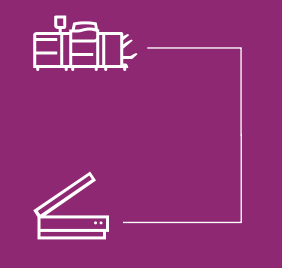Cloud computing has been around for quite a while now, but if your understanding of exactly what that term means is a bit, um, “cloudy,” you’re not alone. Consider this post a crash course in “Cloud 101”—what the cloud is, what it can do for you, how it can benefit a small business, and whether it’s safe to use.
What is the cloud?
You can store data and install software on your computer’s hard drive, or on servers located at your business. However, there are a lot of downsides to these approaches:
- Your hard drive can crash
- Your software eventually becomes outdated
- Servers require maintenance
- You can only access your data and apps when you’re on that particular computer
- Sharing files or data with others can be cumbersome
In cloud computing, your data is stored on the cloud service provider’s servers, instead of in-house. You can also use cloud-based software, or “software-as-a-service” (SaaS). Instead of downloading and installing software, you subscribe to it for a monthly or annual fee. In both cases, you access your data and your apps through the internet.
How can the cloud benefit your business?
Cloud computing can save a small business time and money.
- You don’t have to make a large upfront investment in software; you just pay a small monthly subscription per user.
- With SaaS, one user can generally use the same software across all their devices—no need to purchase multiple copies.
- Since the software is continually updated, you don’t have to worry about installing patches or upgrades, and you always have the latest version as soon as it’s available.
- Cloud-based software means fewer hassles for your IT team (if you have one) or you (if you don’t). It’s kind of like being a renter as opposed to a homeowner.
But perhaps the biggest benefit of cloud computing for an entrepreneur is the increased efficiency and productivity it brings.
- You and your team can access your files, documents, and apps wherever you are. There’s no need to come to the office to work or upload files to USB drives to take them home.
- You can get up to speed faster—adding a new user is as easy as signing in. Scale up or down when you need to so you never waste money on software.
- Sharing and collaborating on work is exponentially easier. Are you and your team still emailing documents to each other (and ending up with five different versions of the same file)? With cloud-based storage and sharing, you can easily share information or even edit the same document together in real time.
- For example, DocuShare Flex from Xerox is simple, cloud-based SaaS that businesses with as few as five employees can use to manage their documents, data and other content. With DocuShare Flex, you can digitize all types of processes, including sharing files, editing files and storing documents.
You can even automate document-related processes, such as invoicing, by setting up rules. It’s easy and intuitive to learn and has a mobile-friendly interface so you can use it in the office or on the go. Plus, with a robust search feature, your team can find any file in seconds. - Use Xerox ConnectKey technology-enabled printers to print from and scan to the cloud. It’s even faster when you use Xerox Web Capture Service, which works with any brand of scanner. Scan documents into SaaS apps like QuickBooks Online, Microsoft Office 365 or Google Apps—Web Capture imports the data directly into the application so it’s usable right away.
 Xerox® Web Capture Services
Xerox® Web Capture Services
Automated scanning-to-web based application software. Ideal for mid-size businesses that rely on web-based applications as part of their business processes.
Is the cloud safe?
Storing your data in the cloud might sound risky at first, but it’s actually safer than keeping it on your computer hard drive or your company’s servers, where it’s subject to viruses, accidents or crashes. Despite the name, your data isn’t floating around in the ether somewhere—it’s stored on the servers of your cloud services provider. A reliable cloud services provider will also have its own backup servers offsite, so your information is doubly protected.
When you choose a provider like Xerox that follows industry best practices in cloud security, you can feel confident your data is in good hands. Xerox uses encrypted user authentication, scheduled backups, off-site storage and site replication to secure your data. DocuShare Flex also offers protection by giving you control over who can access, author and view documents. You can even set up automated data archiving, reviews and destruction. For added security, choose the Content Encryption add-on—it automatically encrypts documents to help protect personally identifiable information.
Read: Xerox® DocuShare® Flex: Cloud Content Management for the Digital Workplace – Do you have anything to share? Finding the right content management system — one that’s affordable and easy to adopt — can make all the difference in handling day-to-day business challenges.
If you’re not yet taking advantage of all the ways the cloud can help your business, what are you waiting for? Your business will be better for it.
To learn more about putting the cloud to use for your business, as well as other tips on leveraging today’s digital tools, subscribe to the Small Business Solutions blog today!
Share this on Twitter!
Tweet: Welcome to Cloud 101 – everything you need to know (but didn’t want to ask) about what the cloud is, what it can do, and how it can benefit your business: https://ctt.ac/hOGFS+ via @Rieva
Subscribe to the Small Business Solutions Blog and receive updates when we publish a new article. [wysija_form id=”1″]


